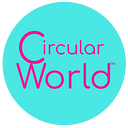The Longer Life of a Coffee Cup
In 2016, the UK coffee chain Costa Coffee started a coffee cup recycling collection service. Up until this point, it was discovered that only one in 400 coffee cups was collected in the UK for recycling because they were made of a difficult-to-recycle mix of paper and plastic. Costa Coffee also found that up to 40 cups were left in their stores every day, which, if collected, would have the potential to recycle 30 million Costa cups a year. Allowing competitor coffee cups to be deposited in their stores could significantly scale up recycling systems.
From this small beginning, in 2018, The National Cup Recycling Scheme was launched and co-funded by seven other major brands, including McDonalds, Pret a Manger, Caffè Nero, Greggs, Burger King, Pure and Lavazza Professional.
These company initiatives paved the way for the UK government to investigate an EPR scheme for coffee cups. In 2025, the UK government will introduce a Mandatory Takeback Scheme for all sellers of filled fibre-based composite cups requiring them to provide bins for the collection and recycling of these cups. They will also be required to report the tonnage collected and recycled to the regulator. Recycling targets will also be introduced for fibre-based composite packaging to be met by producers. The planned mandatory cups takeback obligation will require all businesses with an average of ten full-time employees or more that supply consumers with beverages in fibre-based composite cups filled at the point of sale to provide a visible bin at the premises for the collection of recyclable cups.
After Recycling, Then What?
The UK National Coffee Cup Recycling Scheme is a good story of seizing an opportunity, collaboration and outsourcing the management to an industry professional. It becomes a great story when we know what happens after the coffee cup has been collected, taken to a paper mill where it is re-wetted, re-pulped and then pressed into a sheet with additives like kaolin clay to smoothen it out. According to Simon Weston, Director of Raw Materials at the UK Confederation of Paper Industries, “You don’t recycle the sheet of paper, you recycle the fibres within the sheet.” This is why shredded paper, for example, can render the fibres too weak to be recycled. “And ‘traditional wisdom’ within the paper industry is that you can circulate fibre sheets up to seven times in the process before they are so beat up, they can no longer be used.”
The UK company, James Cropper PLC is one of several companies making new products out of reprocessed coffee cups. They partnered with the greetings cards, party goods and stationery retailer Hallmark Cards to create a card collection made from upcycled coffee cups. Additional products include packaging and luxury shopping bags for high-street brands, which in turn can be recycled.
*************************
Ms Adrienna Zsakay is the founder and CEO of Circular Economy Asia Inc. , and this article presents her opinions on the circular economy. Circular World ™ Video of the Week is brought to you by Circular World™ Media — a brand owned by Circular Economy Asia Inc.
References
'Costa Coffee launches in-store cup recycling scheme' by Rebecca Smithers, published by The Guardian, 26 November 2016.
'The National Cup Recycling Scheme' published by Café Life Magazine - Issue 109 - April 2022.
'Defra’s paper cup takeback delay leaves recycling scheme members disappointed' by Radhika Sikaria, published by Packaging Insights, 04 August 2023.
'How many times can a sheet of paper be recycled?' published by Veolia.
'The Hallmark Greeting Card Story' published by James Cropper
Originally published at https://www.linkedin.com.
